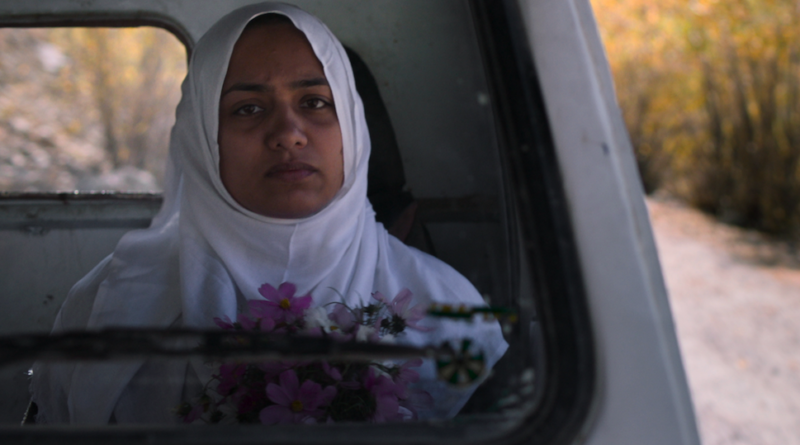INTERVIEW: New film hears the forgotten voices of women in Kashmir
Photo: Widow of Silence stars Shilpi Marwaha as a “half-widow” in Kashmir. Photo courtesy of Barefoot Pictures / Oration Films / Provided by Foundry Communications with permission.
The new movie Widow of Silence, from director Praveen Morchhale, follows the character of Aasia (Shilpi Marwaha) who is on a mission to retrieve her husband’s death certificate. She lives in the conflict-ridden area of Kashmir, and when her husband disappeared seven year prior, she was labeled a “half-widow.” Without proof of her husband’s death, she is unable to lay claim to their family’s land and finds herself stuck in a bureaucratic nightmare.
Widow of Silence, which came out originally in 2018, is now available virtually in select cinemas. The inspiration for the film came to Morchhale almost three years ago. He was reading a newspaper and found a story about these so-called half-widows in the controversial area, which is disputed by China, India and Pakistan.
“Basically it was an article about the women who disappeared over a period of some 25-30 years in Kashmir,” the filmmaker said in a recent phone interview. “It’s in conflict always, a continuous conflict with the government and the people, so I found this article very strange. And I did a lot of research. I found these are very fierce and very tragic stories of these women who actually lost their husbands who actually disappeared, but they don’t have the legal documents that they are either alive or dead. And those women are passing through many emotional, social and other kinds of exploitation.”
Inspired by the news article, the director traveled to Kashmir within two weeks. While in the region, he talked to a couple of women who matched the details outlined in the article, and he was deeply hurt by their stories. “It got very emotional, and I asked one lady about the situation,” he said. “She told me, ‘Why do you want to talk about us? Nobody cares about us. Nobody considers us as alive.’ … At that point, I thought I should make a movie, and then I started working.”
The entire film was lensed in Kashmir. Money was tight because, like Morchhale’s first film, 2005’s Barefoot to Goa, he produced the entire picture himself, and the physical elements were challenging. “Basically we were shooting in a very difficult terrain,” he said. “The temperature at night it was almost 0 [degrees centigrade].”
Electricity was sometimes difficult to secure, especially when the streams in the local area froze at night and the hydropower system failed. Charging the camera’s batteries became a daily chore. “Otherwise it was a very good experience,” Morchhale said. “The local people were very humble and very supportive.”
The filmmaker found his leading actor, Marwaha, working as a theater artist in New Delhi. He was passed a picture of her and instantly wanted to talk to her about the role of Aasia. He was taken by her serious face and expressive eyes — eyes that could convey the deep emotion that the character endures throughout the dramatic picture.
“Then I went to meet her in Delhi,” the director said. “We just chatted over a cup of tea for 10-15 minutes, and I realized she’s the right one for the film. That’s it. I told her that she’s working in a movie. She was surprised. ‘There is no audition?’ ‘No, I don’t take auditions.’ I just meet, and I feel if she is OK, she is in the film. … That was a brilliant performance she has done.”
Morchhale hopes that the movie’s virtual release will bring awareness to the difficulties faced by the half-widows in Kashmir. He believes in the power of cinema to change the world, and that’s exactly what he’s hoping for with Widow of Silence.
“Cinema can be a big change event,” he said. “At least people start to recognize the problem. People start recognizing the issues, and then they can probably act on that. Most of the time, most of the world is not aware about those areas like Kashmir. It’s one corner of the world where hardly anybody hears anything other than the news of the conflict or some encounter or something like that. Everyday it’s in the news, but we never hear the news of women, children, the real suffering of the people who have no voice. … Such cinema, when we make it, probably puts some light on those stories, those situations and those sufferings, and people may help. People can come together and help those women. That is a possibility.”
By John Soltes / Publisher / John@HollywoodSoapbox.com
Widow of Silence, directed by Praveen Morchhale, is now available virtually in select cinemas. Click here for more information.

